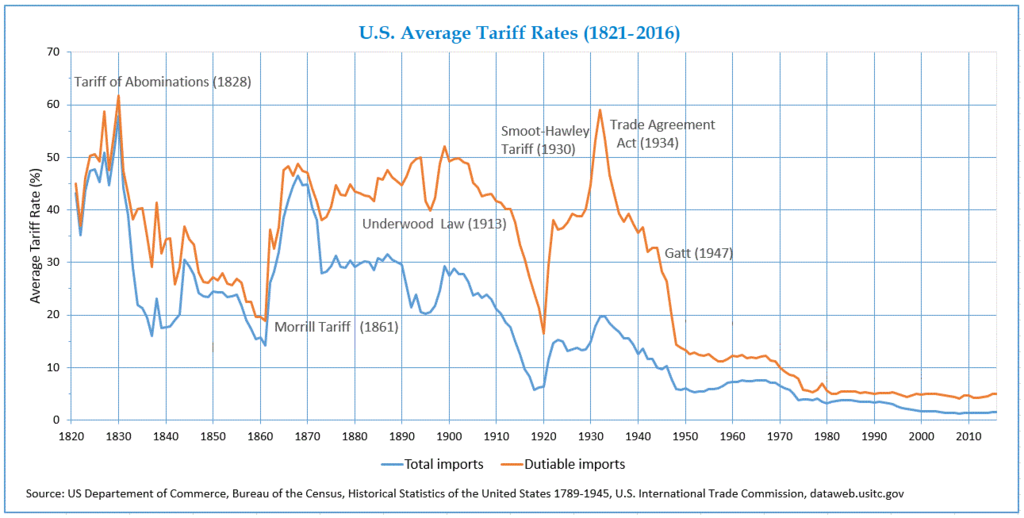To: Bull Snipe
There was the matter of the Tariff of Abominations, which became abominable for all concerned.
This inflammatory piece of legislation, passed with the aid of Northern politicians, imposed a TAX or duty on imported goods that caused practically everything purchased in the South to rise nearly half-again in price. This was because the South had become used to shipping its cotton to England and France and in return receiving boatloads of inexpensive European goods, including clothing made from its own cotton. However, as years went by, the North, particularly New England, had developed cotton mills of its own—as well as leather and harness manufactories, iron and steel mills, arms and munitions factories, potteries, furniture makers, silversmiths and so forth. And with the new tariff putting foreign goods out of financial reach, Southerners were forced to buy these products from the North at what they considered exorbitant costs.
93 posted on
04/01/2018 5:10:37 PM PDT by
JBW1949
(I'm really PC....PATRIOTICALLY CORRECT!!!!)
To: JBW1949
If it was such an abomination, why did it take the South 32 years to secede if tariffs were the driving cause of secession.
To: JBW1949; Bull Snipe
JBW1949:
"There was the matter of the Tariff of Abominations, which became abominable for all concerned." 1828 "Tariff of Abominations" passed under President John Quincy Adams.
Originally supported by many Southerners including Vice President John C. Calhoun (SC) and Andrew Jackson (NC & TN) while opposed by many New Englanders, its passage ignited threats of nullification and secession from South Carolina.
In response, the new President, Andrew Jackson, rather than repealing the Tariff of Abominations, sent warships to Charleston, SC, and a threat:
"...please give my compliments to my friends in your State and say to them, that if a single drop of blood shall be shed there in opposition to the laws of the United States, I will hang the first man I can lay my hand on engaged in such treasonable conduct, upon the first tree I can reach.[68]"
But over the following years, with Southern Democrats in control of Congress & Presidency, tariffs steadily fell until by 1860 they remained as low as ever:

575 posted on
04/08/2018 7:19:08 AM PDT by
BroJoeK
(a little historical perspective...)
FreeRepublic.com is powered by software copyright 2000-2008 John Robinson
